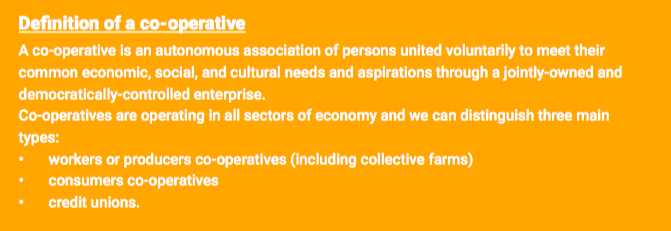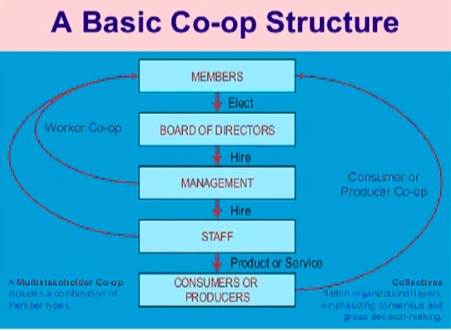Although examples of different forms of self-help or economic cooperation can be found throughout all historical eras, the roots of the current co-operative movement go back to workers and consumers who organised as a response to the harsh social and economic situation inflicted on people by the expansion of industrial capitalism in the 18th and 19th centuries. Co-operatives evolved as a unique organisational form with its own tradition, original defining features and set of values and principles. The current commonly used definition is that of the International Co-operative Alliance (ICA) – the largest global umbrella organ-isation of national and international co-operative organisations.
BASIC STRUCTURE OF A CO-OPERATIVE
Co-operatives are democratically managed organisations. It means that in an ideal case, each member has one vote. The principle of ‘one person, one vote’ is one of the historical corner-stones of co-operatives. The most important decisions are taken by all co-op members at a general assembly. The members also decide about the use of all profits. Therefore it is important to know and apply methods of democratic decision making (see Chapter 2). But even in this type of organisation, the division of labour and delegation of power exists. The structure of co-operatives differs depending upon the type and the scale of any given co-op.

In larger co-ops with more members, power is delegated to the board of directors who are elected by the general assembly for practical reasons. The board of directors manages everyday operations of the co-operative and hire employees if and as required. The structure of the co-operative is stipulated in its by-laws.



